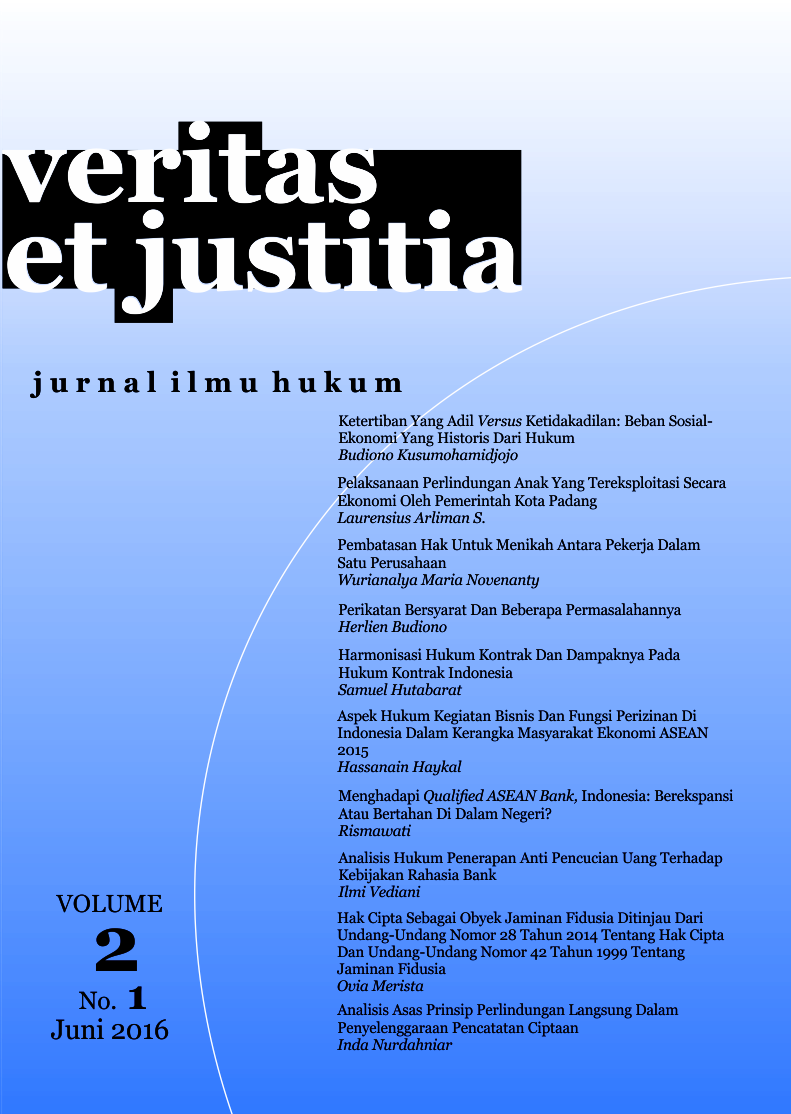PERIKATAN BERSYARAT DAN BEBERAPA PERMASALAHANNYA
DOI:
https://doi.org/10.25123/vej.v2i1.2067Abstrak
Unpredictability is a factor which has always to be dealt with when making contracts and is related to some act (juridical) which may or may not happen. This unpredictability may be the result of an act/commission or ommission to be perfomed by an unknown person, known person or a third person. In respons to this unpredicability, to a contract can be added a conditionality in which failure to meet certain conditions will result in postponement or cancellation. Conditionality may also be employed in making one sided juridical acts, such as a will or a power of attorney. A contract in which one or both parties is required to obtain prior consent before the contract can be performed is a conditional contract. A conditional contract differs from a contract with a time-limit and contract with an obligation. In addition, there are impossible condition, inevitable condition, unlawful condition, indecent condition, potestatif condition, and incomprehensible condition. In regard to a will, attention must be given to the difference between fideï-commis and contract with an obligation. A contract with the conditionality of annulment also differs from an obligation to stand for a surety. The law regulation in articles 1266 and 1267 KUHPerdata acknowledges the conditionality related to annulment which is always assumed in reciprocal contract.
Keywords:
contract, agreement, conditional, annulment, postponement, unpredictable##submission.downloads##
Diterbitkan
Terbitan
Bagian
Lisensi
Authors who publish with this journal agree to the following terms:
Authors retain copyright and grant the journal right of first publication with the work simultaneously licensed under a Creative Commons Attribution License that allows others to share the work with an acknowledgement of the work's authorship and initial publication in this journal.
Authors are able to enter into separate, additional contractual arrangements for the non-exclusive distribution of the journal's published version of the work (e.g., post it to an institutional repository or publish it in a book), with an acknowledgement of its initial publication in this journal.
Authors are permitted and encouraged to post their work online (e.g., in institutional repositories or on their website) prior to and during the submission process, as it can lead to productive exchanges, as well as earlier and greater citation of published work.
The Journal allow the author(s) to hold the copyright and to retian publishing rights without restrictions.










